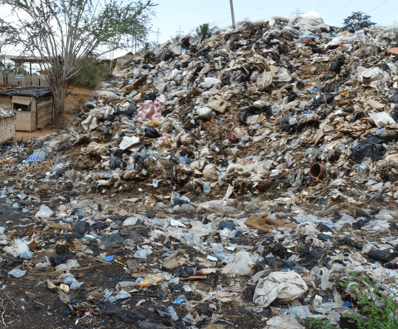
“I’m barren,” they whispered. “She can’t give birth.”These words, cruel and cutting, have followed Angelina Addison for years. At just 37 years old, she lives under the weight of a diagnosis that shattered her world and stripped her of the one dream she had always cherished, becoming a mother.
“The words cut deep, like a knife twisting in my soul,” she recalls, her voice cracking with emotion. “Tears stream down my face as I remember the day the doctor said, ‘You’ll never be a mother.'”
For Angelina, life has become a whirlwind of grief, isolation, and stigma.
It is a story that many women, especially in traditional communities, are forced to live trapped by societal expectations and whispers, their womanhood questioned by a diagnosis beyond their control.
The Diagnosis
Angelina’s journey into motherhood began with hope. She and her husband had been married for nine years, dreaming of the day they would hold their own child. But that day never came. After years of trying to conceive with no success, Angelina and her husband sought help from a doctor.
The diagnosis was swift and crushing, Polycystic Ovary Syndrome (PCOS), a condition that affects a woman’s ability to conceive naturally.
“I felt like my world crashed,” Angelina remembers. “The doctor’s words kept echoing in my mind, ‘Your chances of conception are slim.’ I collapsed, my heart shattered into a million pieces.” Angelina tried to hold onto hope, but the enormity of the diagnosis felt insurmountable.
Her husband, always by her side, tried to comfort her. “He held me tight and whispered, ‘We’ll face this together.’ But deep down, I couldn’t shake the feeling of inadequacy,” Angelina admits
“Was I less of a woman? Was I unworthy of love?”
The Stigma of Infertility
In Angelina’s community in Jamestown, Accra, women are often defined by their ability to bear children.
A woman who cannot conceive is seen as flawed, defective even cursed.
This stigma has become a constant source of pain for Angelina, intensifying her emotional suffering. “In my community, infertility is seen as a curse,” she says. “People whisper behind my back, asking, ‘Why can’t she conceive? Is she cursed?’ Their words pierce my soul.”
These whispers have followed her everywhere, making Angelina feel like a stranger in her own skin. “I feel like I’m living in a nightmare,” she says. “No matter where I go, I can’t escape the judgment.”
This judgment doesn’t just come from neighbors or acquaintances. The pressure extends to Angelina’s marriage as well.
Her husband’s family, desperate for a grandchild, has suggested that he take another wife one who can give him the children Angelina cannot.
“I feel like I’m losing him, like I’m not enough,” she says. “Our marriage is strained, the tension is palpable.”
A Life in Isolation
Angelina’s struggle has also isolated her from the world around her. Once a lively, outgoing woman, she now avoids social gatherings, especially those that involve pregnant women or babies.
“The pain is too much,” she says. “I feel like I’m living in darkness, unable to find the light.”
The isolation has taken a toll on her mental health. “Some days, I can’t even get out of bed,” she admits. “The weight of my infertility crushes me. It feels like I’m drowning in a sea of despair.”
The Financial Strain of Fertility Treatments
As if the emotional and psychological toll weren’t enough, Angelina and her wife have also faced the financial burden of infertility.
Desperate for a chance at motherhood, the couple has spent their savings on fertility treatments. “We’ve spent everything we have,” Angelina says. “The debt keeps mounting, and we’re trapped in a cycle of treatments, hopes, and disappointments.”
The financial strain has only deepened their desperation, as each failed attempt at conception adds another layer of heartbreak. “It’s like we’re paying for our dreams to shatter again and again,” she says.
Despite the pain, Angelina finds strength in her husband’s unwavering support. “My husband’s love keeps me going,” she says.
“He tells me, ‘You’re not alone, Angelina. We’ll face this together.’ Those words give me the strength to carry on, even when I feel like giving up.”
But while her husband’s love sustains her, the stigma of infertility still looms large. Angelina longs for acceptance not just from her community, but from herself.
“I want to be seen as more than my ability to have children,” she says. “I want to be accepted for who I am, as a woman, regardless of whether I can conceive.”
A Call for Change
Angelina’s story is not unique. Across many communities, women are subjected to the same painful stigmas, the same isolation, the same judgment. But Angelina refuses to let her story be defined by whispers or shame. Instead, she hopes her journey will inspire change.
“Infertility is not a curse. It’s a medical condition,” she says firmly. “We need to break the silence, to educate others and end the stigma that surrounds infertility. Women deserve to be seen for more than just their ability to bear children. We deserve dignity.”
“I Am More Than My Infertility”
As Angelina moves forward with her life, she remains hopeful that her story will help others understand the pain of infertility, and perhaps shift the conversation around what it means to be a woman.
“I am Angelina. I am a woman. I am worth and I want the world to know that I am more than my infertility. We all are,” she affirms.
In Ghana, where family and motherhood are deeply ingrained in cultural identity, the experience of infertility can be a silent and isolating struggle.
With an estimated 15-20% of couples facing infertility challenges, the societal implications are profound.
As the numbers rise, so too does the urgency to address the stigma that surrounds this deeply personal issue.
According to a 2019 study by the Ghana Health Service, approximately 30% of married women aged 15-49 experience infertility, often linked to medical conditions such as polycystic ovary syndrome (PCOS), sexually transmitted infections, and other reproductive health issues.
Infertility is not merely a medical issue; it is often viewed through the lens of cultural beliefs that place immense pressure on women to conceive. In many Ghanaian communities, a woman’s worth is tied to her ability to bear children.
The stigma surrounding infertility in Ghana is palpable. Women facing infertility often endure a barrage of questions and gossip. Phrases like “What’s wrong with her?” or “Is she cursed?” are common, creating an environment of shame and isolation.
A report from the International Journal of Gynecology & Obstetrics highlighted that many women experiencing infertility suffer not only from the physical aspects of their condition but also from emotional distress, including depression and anxiety.
This stigma is further exacerbated by familial pressure. Many women find themselves facing demands from their in-laws to produce children, leading to marital strain and, in some cases, divorce.
Research indicates that about 30% of men in Ghana believe it is their right to seek additional wives if their partner is unable to conceive, adding another layer of anxiety for women navigating infertility.
Despite the pervasive stigma, there is a growing movement to challenge these narratives and provide support for those affected by infertility. Advocacy groups are emerging, working to raise awareness and educate communities about the medical realities of infertility.
These organizations emphasize that infertility is a medical condition rather than a personal failing, encouraging open conversations that can break the cycle of shame.
Seeking Solutions
Access to infertility treatments in Ghana remains limited, with many couples unable to afford services like in vitro fertilization (IVF).
The cost of these treatments can range from $1,500 to $5,000, a substantial amount for many families. As a result, only a small percentage of couples can pursue these options, leaving many to grapple with their infertility in silence.
Governmental and non-governmental organizations are beginning to address these issues by providing financial assistance and increasing the availability of reproductive health services.
Initiatives aimed at integrating infertility treatments into existing healthcare frameworks are crucial steps toward alleviating the burden faced by couples.
Changing the Narrative
The narrative around infertility in Ghana is slowly beginning to change. More women are sharing their stories, fostering a sense of community and solidarity among those affected.
Social media platforms have become spaces for these conversations, allowing women to connect, share experiences, and find support outside of their immediate communities.
The post Feature: A Woman’s Worth; Beyond A Baby Bump appeared first on The Ghanaian Chronicle.
Read Full Story















Facebook
Twitter
Pinterest
Instagram
Google+
YouTube
LinkedIn
RSS